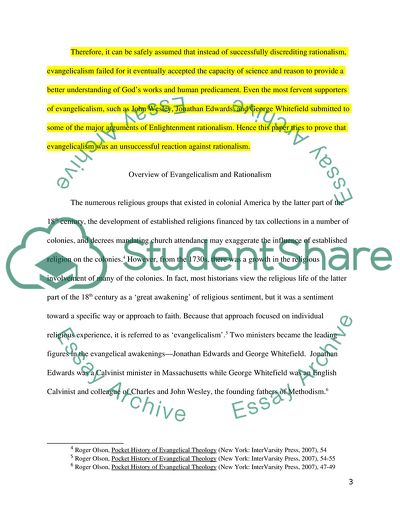Cite this document
(Evangelicalism: An Unsuccessful Movement against Rationalism Research Paper Example | Topics and Well Written Essays - 3750 words, n.d.)
Evangelicalism: An Unsuccessful Movement against Rationalism Research Paper Example | Topics and Well Written Essays - 3750 words. https://studentshare.org/history/1795555-was-evangelicalism-a-reaction-to-rationalism-for-christianity
Evangelicalism: An Unsuccessful Movement against Rationalism Research Paper Example | Topics and Well Written Essays - 3750 words. https://studentshare.org/history/1795555-was-evangelicalism-a-reaction-to-rationalism-for-christianity
(Evangelicalism: An Unsuccessful Movement Against Rationalism Research Paper Example | Topics and Well Written Essays - 3750 Words)
Evangelicalism: An Unsuccessful Movement Against Rationalism Research Paper Example | Topics and Well Written Essays - 3750 Words. https://studentshare.org/history/1795555-was-evangelicalism-a-reaction-to-rationalism-for-christianity.
Evangelicalism: An Unsuccessful Movement Against Rationalism Research Paper Example | Topics and Well Written Essays - 3750 Words. https://studentshare.org/history/1795555-was-evangelicalism-a-reaction-to-rationalism-for-christianity.
“Evangelicalism: An Unsuccessful Movement Against Rationalism Research Paper Example | Topics and Well Written Essays - 3750 Words”. https://studentshare.org/history/1795555-was-evangelicalism-a-reaction-to-rationalism-for-christianity.


